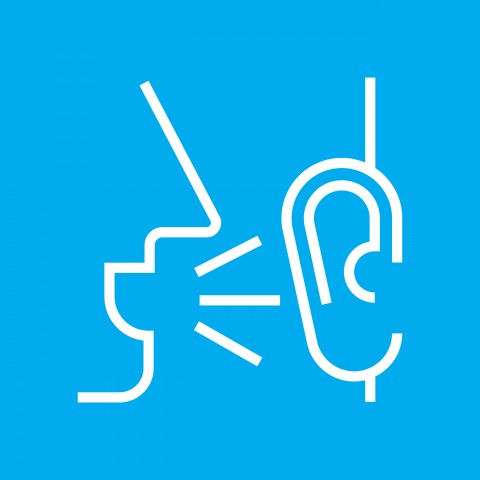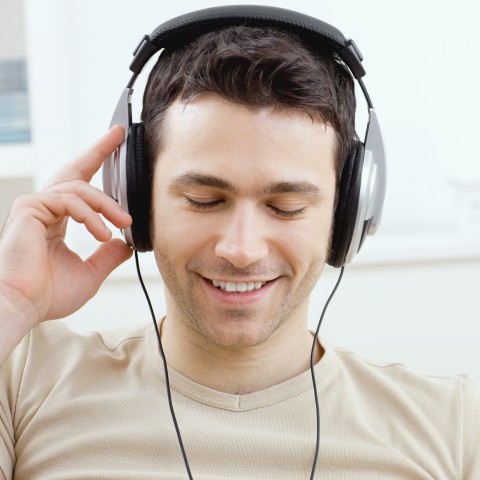
Searching for ways to fast-track your conversation skills in Afrikaans? The Internet is replete with techniques and advice to improve this ability. With a thorough search, you will even find specific Afrikaans lessons about conversation skills.
Many of these are excellent, and they all offer (basically) the same tried-and-tested tips and ideas. In this article, I’m going to discuss some of the tips at length because they work well if you apply and practice them consistently. I will also give examples of useful phrases to memorize for easy conversations in Afrikaans.

Goeie gespreksvaardighede verseker goeie gesprekke. / “Good conversation skills ensure good conversations.”
However, in addition, I will offer something exclusive—expert advice from a master language learner. Be sure to read on for it because applying this tip will take your basic Afrikaans conversation skills to the next level—guaranteed!
 Table of Contents
Table of Contents
- Excellent Ways to Improve your Afrikaans Speaking Skills
- Listen Up!
- Learn and Use Afrikaans Filler Words
- Learn Common Afrikaans Questions and Answers
- Afrikaans Conversation Starters
- The Secret is the Sheet…!
1. Excellent Ways to Improve your Afrikaans Speaking Skills
Improving your conversation skills in Afrikaans should not require a degree or cost truckloads of money. Acquiring a new language is not rocket science; even babies do it all the time!
So, if you’re serious about how to improve your Afrikaans speaking skills, here are a few pointers to get things going.
1- Get A Native Afrikaans Tutor or Instructor
Depending on your budget and specific needs, enlisting the help of a native Afrikaans-speaking personal tutor or instructor is your best option to quickly improve your Afrikaans conversation skills.
If the person is affiliated with an online language platform, such as AfrikaansPod101.com, this option will have a few distinct advantages that practically guarantee success.
- There’d be a set curriculum and lesson plan already in place, so you don’t have to scramble for these.
- Your teacher’s guidance, assessment, and feedback will be invaluable in terms of easier learning and also staying on track with it.
- Most will allow you to learn at your own pace and even customize your lessons. AfrikaansPod101.com makes this exceedingly easy with features such as this free mobile app for creating your own lists. Paid-for features and options are even more helpful, and their cost really won’t break the bank.
- Your native Afrikaans teacher will continuously assess and improve your pronunciation and inflection—essential if you want to be understood by other Afrikaans speakers.
- One of the secrets to successfully improving your conversation skills in Afrikaans (and any other language, really) is to keep your motivation high. Your teacher or tutor is an invaluable resource in this regard; it’s like having your own cheerleader almost literally by your side every day. This will boost your speaking confidence considerably.
- You’d have free learning resources available to play with on the site—too many to list here! But for instance, check out this helpful Afrikaans Key Phrase List—essential for conducting basic Afrikaans conversations.
- Also, the fact that tutoring takes place online means it’s never been easier to study Afrikaans from home or wherever you are connected to the Internet—at the pace that best suits your needs and lifestyle. It’s really that simple.

‘n Persoonlike aanlyn taalinstrukteur kan jou studies aansienlik bevorder. / “A personal online language instructor can significantly improve your studies.”
2- Practice with a Native Afrikaans Partner
If a paid-for tutor or instructor is not an option, and especially if you don’t have regular access to the Internet, that’s not the end of the world. Consider finding an Afrikaans speaking buddy with whom you can practice live and improve your Afrikaans conversation skills.
Here are a few ideas to procure such a buddy.
- If you’re so lucky to be in South Africa already, finding one might prove quite easy. Be bold—reach out, and ask Afrikaner friends, colleagues, or even strangers for assistance with your Afrikaans conversation skills. For a head-start and to show that you’re serious about learning the language, acquaint yourself with the Afrikaner culture. Or at least master the excellent skill of greeting someone in Afrikaans!
- Alternatively, consider enrolling in a language school, such as the Mzansi Language School in Pretoria that offers Afrikaans classes on site, with a focus on building conversation skills.
- If you’re not in South Africa, you could still search for a native Afrikaans buddy. Most foreign countries have communities of Afrikaans expats, and these you may find through the South African consulate or embassy in your own country of residence. The embassy or consulate might even have free resources or Afrikaans learning programs available for students, or they may know of Afrikaans expats willing to take students or conversation buddies.
- Especially countries such as the USA, the UK, Australia, many Asian countries, the UAE, etc., have large Afrikaans expat communities, and most of these communities have formed Afrikaans churches. Many Afrikaans-speaking South Africans are Christians, and if you are too, attending Afrikaans church services might be a way to connect meaningfully with someone.
- Alternatively, there might be English language schools if you live in a non-English country such as China, South Korea, and Japan. Many South Africans teach English at these schools, so pay them a visit. Who knows, you may end up making a friend this way, because especially the new teachers are pretty lonely so far away from home!
- This is not a conventional tip, and of course, I mean it light-heartedly (only somewhat!), but one of the best ways to learn and practice your Afrikaans conversation skills is to date a native speaker. Provided you spend a good amount of time talking, of course. ‘Nuff said!

‘n Romantiese verhouding met ‘n Afrikaanssprekende persoon kan jou motiveer om die taal vinnig te bemeester. / “A romantic relationship with a native Afrikaner could motivate you to master the language fast.”
However, simply practicing random words and phrases in Afrikaans with a native speaker doesn’t guarantee success, and it’s a slow way to go about improving your conversation skills in Afrikaans. You’ll need some structure, or your efforts will be wasted. If study materials and Afrikaans lessons about conversation skills are in short supply, you might have to create your own.
Creating your own learning materials should be attempted only by the advanced Afrikaans learner. And only if you have lots of time on your hands because it involves a lot of work. Plus, you will still need a native speaker to assist you, or you may end up learning incorrect language or poor conversational habits.
If you’re willing to put in the effort, it will be worth the investment, so let’s get down to it.
3- Be Your Own Master Teacher
The following guiding tips will show you how to improve your Afrikaans speaking skills by creating your own conversation-learning curriculum and practices. But don’t stop here—read on for the promised expert advice…
➜ Choose A Topic
Make things easy for yourself by keeping it ‘bite-sized’. Start by choosing an interesting topic you’d like to chat about in Afrikaans. Then search for level-appropriate base material in Afrikaans, such as this topic for advanced students (whales), for instance.

Walvisse is ‘n interessante onderwerp om oor te gesels. / “Whales are an interesting topic for discussion.”
And if you’re a beginner, you may find this article about Afrikaans beginner words (with a good dash of grammar!), or this one, with easy phrases for beginners, especially helpful.
➜ Write Out Phrases, Dialogues, Expressions, Etc.
Now it’s time to create and write down your own dialogues, using topic-focused lines, proverbs, sayings, expressions, etc. Depending on your level of proficiency, keep the phrases concise at first.
At this point, it might be best to enlist the help of a native Afrikaner friend or colleague to ensure accuracy.
➜ Record the Dialogues
Next, record your dialogue, which offers three advantages:
- You get to hear yourself speaking in Afrikaans and can easily compare it with correct recorded samples.
- Using recordings offers more freedom in your learning. For instance, your native-speaking friend won’t need to be with you to be able to correct your pronunciation. They can simply listen to your recording and then record corrections that you can use.
- The correct dialogue or phrases can be listened to repeatedly. So, it’s a valuable resource.
Gebruik opnames om jou Afrikaanse gespreksvaardighede mee te verbeter. / “Use recordings to improve your Afrikaans conversation skills.”
- ➜ Memorize and Shadow Practice
Now use your own recordings as learning tools by listening and shadow practicing. Shadow practicing means you listen to a phrase and then repeat it aloud after the speaker.
Your aim is to memorize the dialogues. Once you’ve done that, it would be best to keep practicing them live with a native speaker too.
- ➜ Just Go with an Established Online Language School Already!
These tips so far are great, and I know you’ll succeed using them if you urgently need to learn how to improve your Afrikaans speaking and listening skills.
But really, this is the long way to go about learning good Afrikaans conversation skills. You’ll be practically reinventing the wheel here, especially if you have access to the Internet.
It would be much easier to just subscribe to what is arguably the best Afrikaans resource site available for free. There are paid-for learning paths available but enrolling at AfrikaansPod101.com for a lifetime free account means immediate free access to a massive library of study material and other resources. The site focuses on conversational Afrikaans for learners of all levels, so this step is actually a no-brainer, really!
OK, so these are the basics. If you put these tips to use, you’ll see more than an uptick in your Afrikaans basic conversation skills.
Now it’s time to take things to the next level by learning a few other conversation superpowers.

Luisteroefeninge is essensiëel om gespreksvaardighede te ontwikkel. / “Listening exercises are essential for developing conversation skills.”
2. Listen Up!
Irrespective of whether you enroll with a tutor or a language school or go the DIY route—listening exercises are vital for developing polite conversation skills in Afrikaans and in every other language, really. After all, dialogues or conversations are a two-way business—one person speaks while the other listens.
To make sure your Afrikaans listening ability is on point, here are a few tips.
- Something that will help to improve your Afrikaans conversation skills is ensuring that your recorded samples of speech, mentioned under the previous heading, are of excellent quality, meaning the grammar and pronunciation is correct Standard Afrikaans. You don’t want to train your ear to what typical Afrikaans doesn’t sound like.
- Search online for Afrikaans podcasts, or, if you’re so lucky to be in South Africa already, visit a local library for free resources such as recorded books, radio dramas, TV series, etc. Also, consider using YouTube videos, other recorded readings, or speeches in Afrikaans.
- Also, why not create a playlist of excellent Afrikaans songs on platforms such as YouTube? Listening to Afrikaans music is not only an excellent language-acquisition exercise, but it’s also a pleasurable one that can be enjoyed anywhere, any time. Consider this article to help you select the best Afrikaans music (with the correct pronunciation and syntax) on YouTube.

Daar is uitstekende Afrikaanse potgooie aanlyn om jou luistervaardighede mee op te skerp. / “There are excellent Afrikaans podcasts online with which to practice your listening skills.”
3. Learn and Use Afrikaans Filler Words
Fillers are those seemingly meaningless words (or even noises) in conversational speech that can serve multiple purposes. For instance, they can convey:
- ➜ the speaker’s general emotional state,
➜ that the speaker needs a moment to think before speaking, or
➜ the speaker’s true thoughts or feelings about the topic under discussion (which can include feeling unsure, scared, or fearful, caught off guard, flustered, embarrassed, surprised, etc.).
Adding appropriate filler words to your Afrikaans conversations is a surefire way to dramatically enhance them. For instance, they will help your Afrikaans speech sound more natural, provided they’re used correctly. Too many of them can be irritating and are not advised if you’re expected to give a speech, for instance. However, they’re such a natural part of the vernacular that they shouldn’t be avoided altogether either.
Some filler words are universal and have the same meaning in many languages. Think, for instance, of the ubiquitous “Uhm”.
To give an example:
| Imagine your Afrikaans friend Magda’s birthday is coming up. You want to get her something special as a gift and decide to ask rather than guess. The conversation then goes something like this: You: Wat wil jy graag vir jou verjaarsdag hê, Magda? / “What would you like for your birthday, Magda?” Magda: Uhm, laat ek bietjie dink… / “Uhm, let me think a bit…” |
This hesitation noise typically indicates that the speaker is feeling unsure or insecure about what it is they should or want to say, so they use it to communicate that they’re thinking.
As mentioned, it’s a universal filler word, so you’ll probably find yourself using it quite naturally anyway. Remember to include the closing “M” in “Uhm”, which is typical in Afrikaans, but not in languages such as French and Italian, for instance.
1- How to Use Filler Words to Build Conversation Skills in Afrikaans
How to use fillers to enhance your conversation skills in Afrikaans is a dense topic that we answer comprehensively in another article: Afrikaans Filler Words to Make You Sound Like a Native.

Uhm, laat ek ‘n bietjie dink… / “Uhm, let me think a bit…”
The secret is to know exactly what the fillers mean, and how to use them. Now let’s look at a few more typical Afrikaans filler words, with examples of their use in conversational speech.
2- Common Filler Words in Afrikaans
Afrikaans is an expressive language that “says it as it is”. Also, the more personal, emotional, or dramatic the conversation, the more filler words you’ll hear. For this reason, many of them are reserved for the less formal types of conversations.
Not that the Afrikaans Language Police will make an arrest if a filler is used in a more formal milieu. If it’s used in a specific context or serves a purpose such as comic relief, the following fillers are pretty ‘safe’ in less informal situations too.
Here’s an example of a few filler words and how they’re used in Afrikaans.
| Imagine it’s an icy winter morning, and you and your friend Magda have just met up in town for a coffee date. Presently, the two of you are standing shivering outside in the street. Magda: Sjoe, maar dis baie koud vandag! / “Wow, it’s very cold today!” You: Ja-nee, dit is wraggies koud. / “Yea, it’s really cold.” |
Did you spot the two fillers? Yup, they’re sjoe (“wow”), and ja-nee (Literally: “yes-no”).
Ja-nee is a uniquely Afrikaans filler word and is most commonly used to express agreement or confirmation. It sometimes occurs in American and South African English conversations too, but not in a similar format, so to speak.

Sjoe, maar dis baie koud vandag! / “Wow, it’s very cold today!”
Ja-nee is pronounced as one word, and it always indicates almost implicit agreement with the speaker or indicates confirmation of something as fact. In English, it’s never expressed as “Yes, no”, which is the literal translation, but rather “Yeah, no”, and it can sometimes denote a certain degree of uncertainty or hesitation in the speaker. Like this, for instance:
“Yeah, no, I understand what you’re saying, and I agree, but…”
Interestingly, the adverb wraggies, the diminutive form of wragtag (“Truly / Really!”), is also used as a filler word in Afrikaans. It’s remarkably similar in meaning to ja-nee but can also denote a sense of amazement or surprise. It’s typically used together with another filler: né, and it sounds like you’re asking a rhetorical question. Here’s a demonstration:
| Two students are having a conversation about exams. A: Dis eienaardig. Hierdie jaar se Gevorderde Afrikaanse eksamen was baie makliker geweesas laasjaar s’n. “It’s weird, but this year’s Advanced Afrikaans exam was way easier than last year’s.” B: Wraggies, né?! Approximate: “Awesome, yeah?!” |
The following are two other, very commonly used Afrikaans fillers.
| Picture this: you and a few Afrikaans friends are watching a game of rugby, one of the most popular national ball sports of South Africa. On the field, one of the players looks like he’s going to score a try, but just before he reaches the goal line, he trips and falls hard. Everyone in the room goes: Shssssss, eina! (Pronunciation: Shssss is the hissing sound you’d make when taking in a long breath through your front teeth with your jaw clenched. And eina! (“ouch!”) is often but not always a loud, emphasized exclamation in Afrikaans.) |
These two filler words (Shsssss and Eina) can indicate that you’re experiencing pain yourself or that you’re commiserating with someone else’s pain. This can be physical pain or the “injury” of embarrassment, or a bruised ego.

Eina, dit lyk seer! / “Ouch, that looks painful!”
It’s also common to say Eina, shssss!
Now let’s discuss another conversation skill—using Afrikaans questions and answering them correctly.
4. Learn Common Afrikaans Questions and Answers
One of the best ways to keep any conversation going is to ask questions and answer them appropriately. This is another elaborate topic that’s impossible to do justice to in only a few paragraphs. Also, it’s a skill that’s learned only with persistence and practice and is best supported by a native Afrikaans tutor or speaking friend.

Om vrae te vra is ‘n uitstekende gespreksvaardigheid. / “Asking questions is an excellent conversation skill.”
For a longer list of questions and answers in Afrikaans, consider this article. It’s complete with cultural context and tips—invaluable for meaningful conversations with native Afrikaners.
Also, remember that you need to raise your voice towards the end of the sentence when you ask a question in Afrikaans. Let’s take a look at some Afrikaans questions and answers commonly used in conversations.
1- Examples of Common Afrikaans Questions and Answers
The following are easy, beginner questions and answers in a relaxed, social situation.
| Imagine, for instance, that you’re at a language school party where you’ve just met a girl whom you’d like to get to know better. The conversation will be informal, and after greeting her with a friendly smile and a simple “Hello”, it could go something like this: Q: Wat is jou naam? “What is your name?” A: My naam is Anna. “My name is Anna.” She may ask you the same question in return, to which you can reply in the same fashion—just insert your own name, of course!
|
For more advanced speakers, the questions and answers could look like this:
Q: Wat kan ek jou noem?
“What can I call you?”
A: Jy kan my sommer Anna noem.
“You can simply call me Anna.”
Another variation of the question is Wie is jy? (“Who are you?”), but just like in English, it’s not the friendliest or most polite question in Afrikaans vernacular.
| Let’s suppose you’re interested to hear where Anna is from. Then you ask: Q: Waar kom jy vandaan? “Where are you from?” A: Ek is van die V.S.A. “I’m from the U.S.A.” Anna may now ask where you’re from, or you could keep the conversation going by simply offering: A: Ek is van Engeland. “I’m from England.”
|
More advanced questions and answers include:
Q: Van waar in die V.S.A is jy?
“Where in the U.S.A. are you from?”
OR
Q: Waar het jy grootgeword?
“Where did you grow up?”

Ek het grootgeword in Seattle, Washington. / “I grew up in Seattle, Washington.”
A: Ek kom oorspronklik van die noorde af.
“I’m originally from the north.”
OR
A: Ek het grootgeword in Seattle, Washington.
“I grew up in Seattle, Washington.”
| Now that you know where Anna is from, you’d like to know where she’s currently living. Q: Waar bly jy? “Where do you live?” A: Ek bly in New York. “I’m living in New York.”
|
And the advanced versions are:
Q: In watter stad of dorp woon jy tans?
“In which city or town do you currently live?”
A: Ek woon tans in New York.
“Currently, I’m living in New York.”
5. Afrikaans Conversation Starters
Finding yourself in a situation where you must start a conversation can be daunting if you don’t know the other person. This could be even more so when speaking a foreign language!
1- Examples of Afrikaans Conversation Starters
The questions under the previous heading or simply introducing yourself can also serve as excellent conversation starters for beginner learners of Afrikaans.
If you’re at a more advanced level, consider giving a sincere compliment to open a conversation with someone. Here are a few to consider.
Imagine, for instance, you’re meeting someone for the first time. (This can be any scenario—a date, at a work function, or at a party.) You’re nervous and can see that the other person feels the same. To put them at ease, you could greet and then open a conversation with:
|
And now, finally—the promised expert advice for developing the Afrikaans conversation skills of a winner.
6. The Secret is the Sheet…!
Peter Galante, one of the founding members of InnovativeLanguage.com, can speak several languages. He makes language acquisition look super easy, but this is because, over the years, he developed certain methods and tricks that helped him become a language-learning master.
The method I’m going to discuss is what he calls “a cheat sheet for making fast progress”, and it entails compiling and then memorizing a list of phrases that are most relevant and specific to you. Simple as that! Yet don’t be deceived—using this tip will significantly improve your conversation skills in Afrikaans.
Keep the following in mind when creating your own cheat sheet:
- The phrases should include an introduction, plus details about yourself and your life—in an idiom and language style that suits different situations or scenarios, your age, and your generation. For instance, if you’re young, add Afrikaans slang words and phrases that young people will typically use. Fortunately, Afrikaans nouns and pronouns don’t change for gender, so you don’t have to worry about this.
- Especially if you’re a beginner student, you might want to ask an Afrikaans tutor or native Afrikaans speaker to help you with this task.
- It’s OK if, at first, you overdo the list! Compile as many phrases you can think of for as many hypothetical conversations as you prefer. Then, whittle the list down to the twenty most important phrases and memorize them. The other phrases will not be a waste, as you could always refer to them as your situations and skills change.

Ek is 20 jaar oud en ek studeer voltyds. / “I’m 20 years old and I study full time.”
Let me demonstrate with a few examples. Remember that these phrases are not in a specific order. They are simply appropriate responses to specific questions or situations that you may encounter.
1-Examples of Cheat Sheet Phrases
Our first example profile is of an ambitious young woman who works extremely hard at her studies, which means she barely has time to hang out. The following are a few phrases she might consider for her list. The conversation is with a peer who introduces themselves to her and asks her out, so it’s very casual.
|

Goeiedag, ek is dokter Michael Williams. / “Good day. I’m doctor Michael Williams.”
The next profile is of an ophthalmologist in his early forties. He has chosen to relocate to South Africa to further his specialization in poverty-related eye diseases, and learning to speak Afrikaans is a requirement for his internship at the famous Pretoria Eye Hospital. In this scenario, he’s meeting with the Human Resource Manager of the hospital, so the situation is somewhat formal.
|
Also, consult the following articles when you create your cheat sheet:
- ➜ Your Guide to the Best Basic Afrikaans Phone Phrases!
➜ How To Say ‘Thank you’ in Afrikaans!
➜ Most Common Travel Phrases in Afrikaans.
➜ Useful Phrases for Conducting Business in Afrikaans.
So, are you convinced yet? How to improve your Afrikaans listening and speaking skills need not be an insurmountable task.
Let AfrikaansPod101.com help you achieve this—we’re expertly geared to help you get nearly as fluent as a native speaker, so enroll now!
About the author: Christa Davel is an experienced, bilingual (Afrikaans and English) freelance writer, content creator, and journalist and is currently based in Cape Town, South Africa. She’s been writing for InnovativeLanguage.com since 2017.














